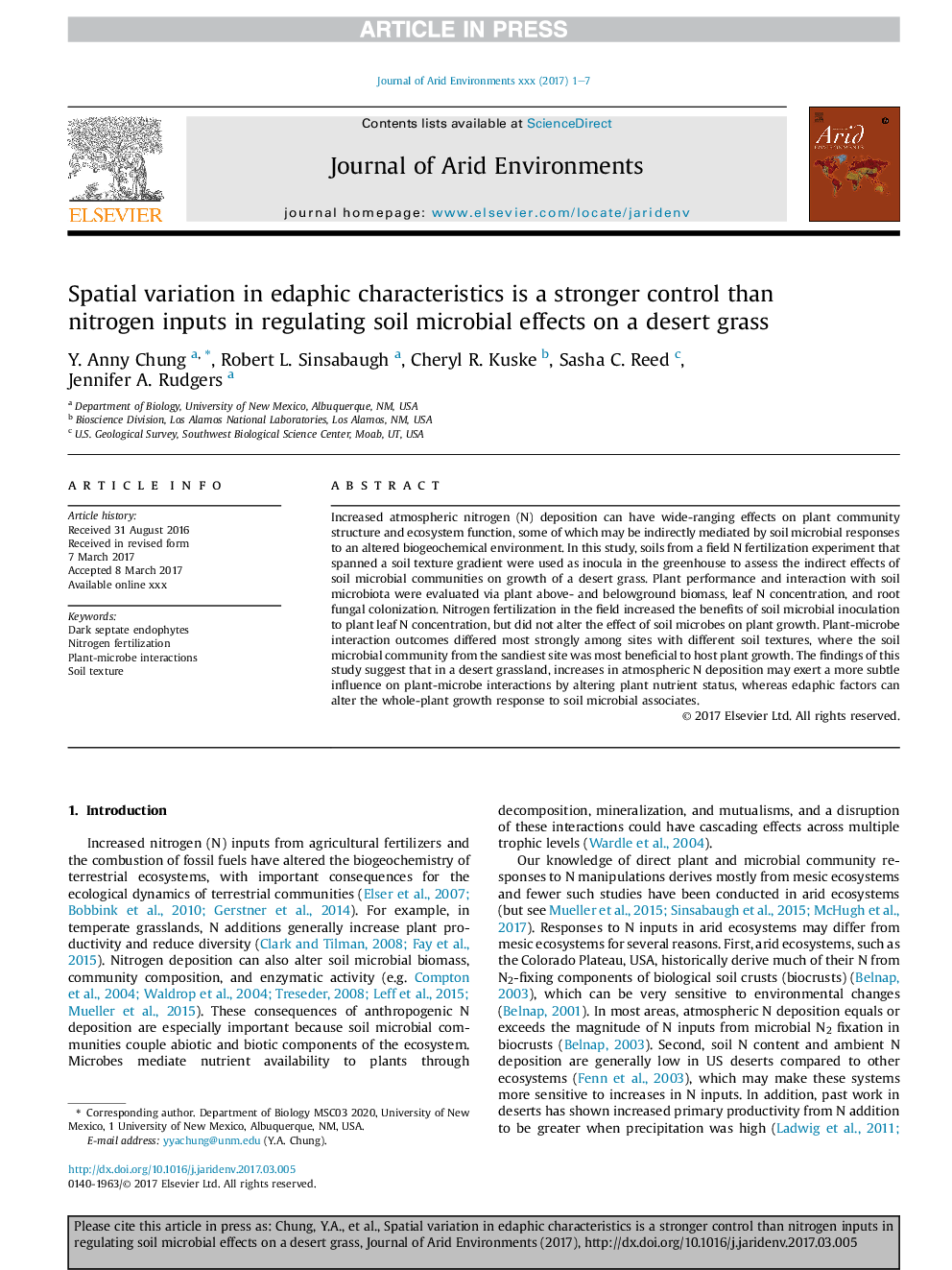| Article ID | Journal | Published Year | Pages | File Type |
|---|---|---|---|---|
| 5744296 | Journal of Arid Environments | 2017 | 7 Pages |
Abstract
Increased atmospheric nitrogen (N) deposition can have wide-ranging effects on plant community structure and ecosystem function, some of which may be indirectly mediated by soil microbial responses to an altered biogeochemical environment. In this study, soils from a field N fertilization experiment that spanned a soil texture gradient were used as inocula in the greenhouse to assess the indirect effects of soil microbial communities on growth of a desert grass. Plant performance and interaction with soil microbiota were evaluated via plant above- and belowground biomass, leaf N concentration, and root fungal colonization. Nitrogen fertilization in the field increased the benefits of soil microbial inoculation to plant leaf N concentration, but did not alter the effect of soil microbes on plant growth. Plant-microbe interaction outcomes differed most strongly among sites with different soil textures, where the soil microbial community from the sandiest site was most beneficial to host plant growth. The findings of this study suggest that in a desert grassland, increases in atmospheric N deposition may exert a more subtle influence on plant-microbe interactions by altering plant nutrient status, whereas edaphic factors can alter the whole-plant growth response to soil microbial associates.
Related Topics
Physical Sciences and Engineering
Earth and Planetary Sciences
Earth-Surface Processes
Authors
Y. Anny Chung, Robert L. Sinsabaugh, Cheryl R. Kuske, Sasha C. Reed, Jennifer A. Rudgers,
